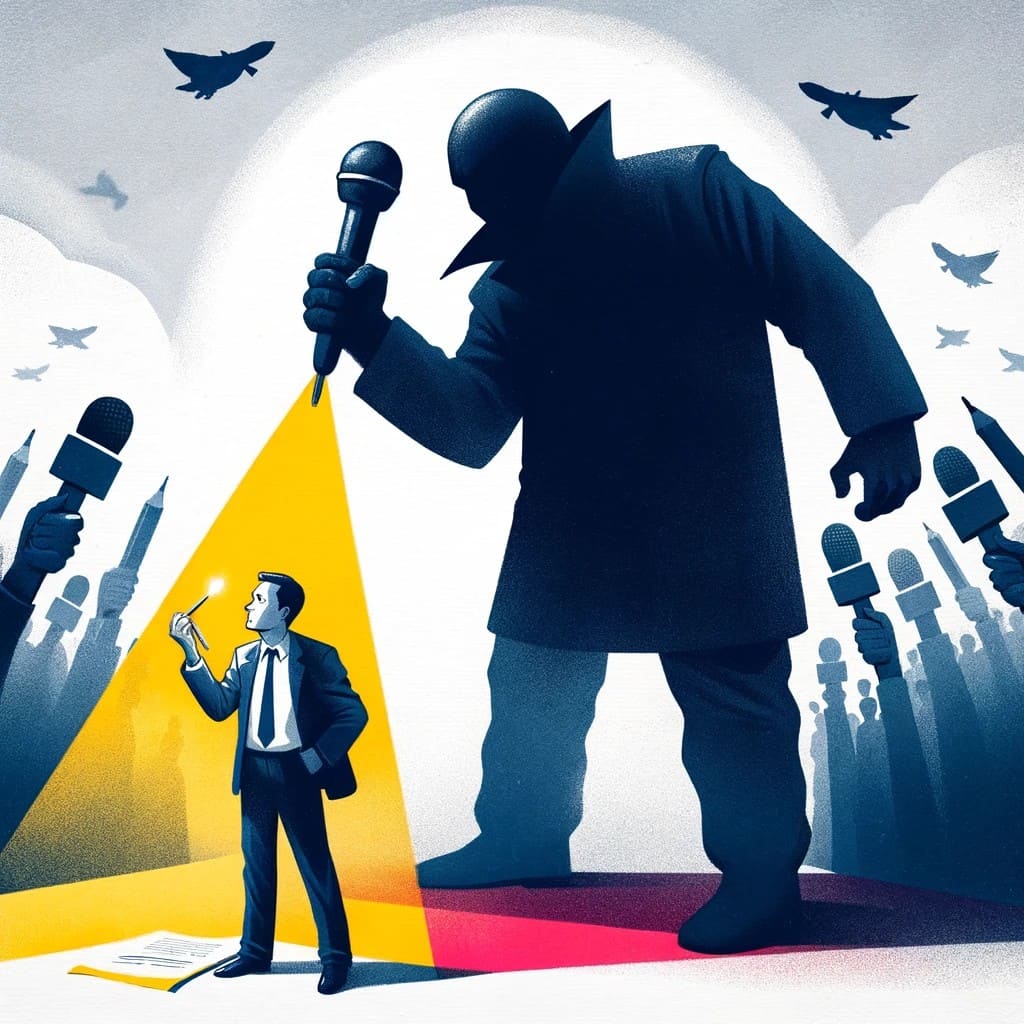The situation in Russia has seen a dramatic escalation in measures taken against independent journalists and media outlets. New legislation introduced in 2022 significantly penalizes "discreditation" of and "disseminating deliberately false information" about the Russian armed forces, leading to over 100 and 180 criminal cases, respectively, and at least 5,518 administrative prosecutions for "discreditation". This legislation effectively criminalizes a wide range of expressions of dissent or criticism of the military actions in Ukraine, placing journalists under immense pressure and at risk of prosecution for their reporting.
Independent media faces a particularly dire situation, with numerous outlets being shut down and thousands of websites blocked. Prominent examples include the closure and blocking of Echo Moskvy, a central radio station, and Russian authorities' blocking of social media platforms like Twitter, Facebook, and Instagram. The label of "foreign agents" has been extended to include a broader range of individuals and organizations, further stifling free expression and the operation of NGOs and civil society groups that might support or engage in independent journalism.
This crackdown extends beyond media to encompass any public demonstration of dissent. Peaceful protests against the war have been met with excessive force by police, leading to more than 19,400 arrests, including those of journalists covering the events. Such repressive actions not only silence current voices of opposition but also create a climate of fear and self-censorship among potential critics of the government.
The implications of this repression are far-reaching. By stifling independent journalism and silencing dissenting voices, the Putin regime not only violates the fundamental rights of its citizens but also undermines the principles of democracy and freedom of expression. The lack of independent reporting and critical analysis of the war in Ukraine leaves the Russian public with a one-sided narrative, potentially skewing public perception and support for the conflict.
Moreover, the attack on independent journalists and the broader crackdown on dissent reflects a troubling trend towards authoritarianism in Russia. As the government increases its control over the media landscape and public discourse, the space for democratic engagement and accountability diminishes. This impacts the immediate situation in Russia and Ukraine and has broader implications for international relations, as it challenges the global norms of freedom of the press and expression.
In conclusion, the increasing repression of independent journalists in Russia, set against the backdrop of the military aggression against Ukraine and internal acts of terrorism, marks a critical juncture for the country. The international community must remain vigilant and continue to advocate for the rights of journalists and the preservation of free expression in Russia. Without these fundamental freedoms, the prospects for democracy and peace in the region and globally are significantly dimmed.

